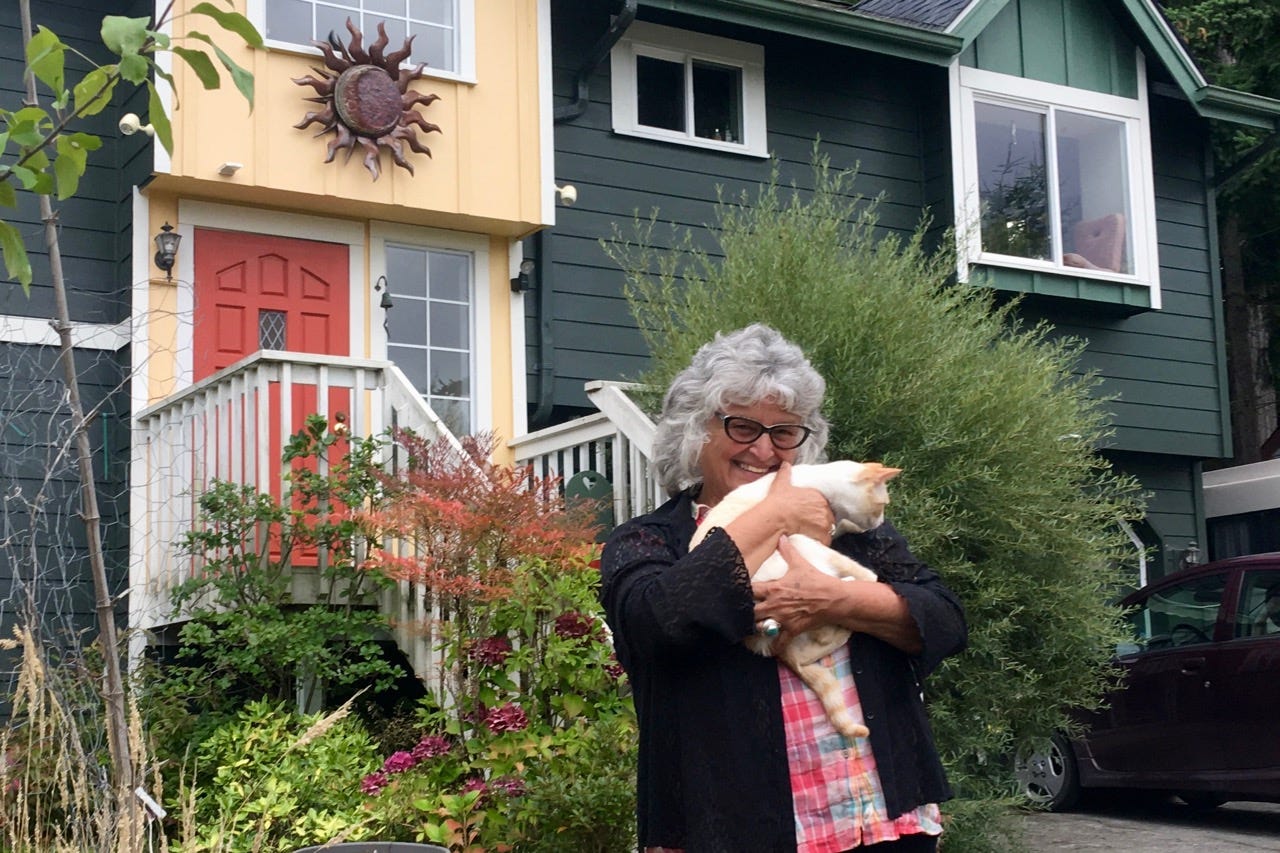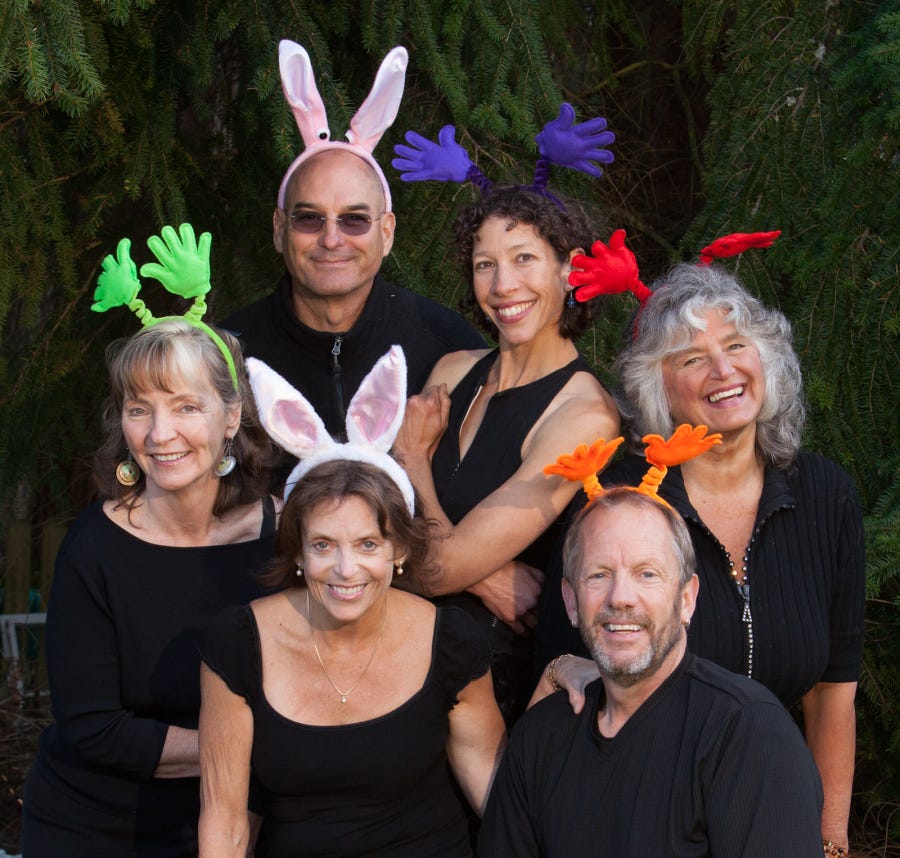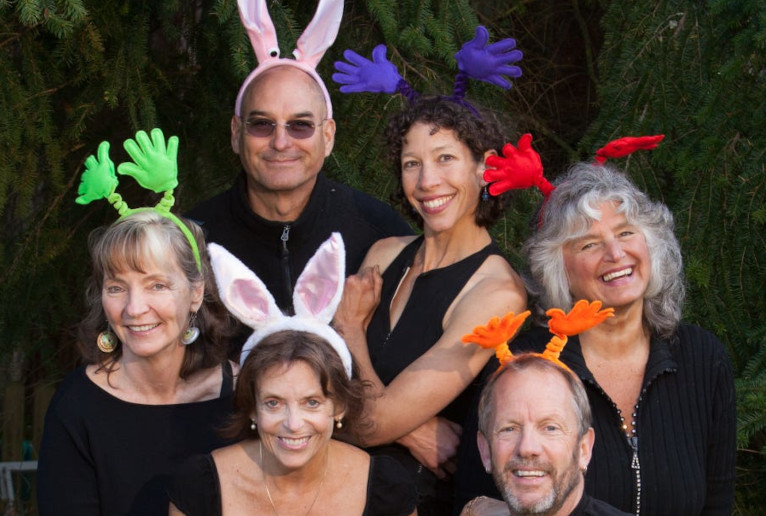We all want community…theoretically.
As we strain against the shock and awful of the Trump administration’s opening moves, and look for how to respond, a chorus of smart, wise writers tell us we should work locally.
Suddenly, our hometowns – often treated like a pit stop or a shopping mall as we travel, write, study, organize – look important. But how? Where do we march, drop banners, deliver white papers? How does a city council meeting about upgrading the sewer system meet the political moment?
When you go local, you are in a different world, at a different pace, and the mind formed by a global or national political focus can’t even see anything moving in this limited landscape.
We need to go slow to go local. A town layered like sediment by generations of inhabitants, doesn’t change much with the every two year political cycle – newbie bright ideas.
Twenty years ago, exactly, I learned the etiquette of local change making. Having been whittled down to size by a confrontation with cancer, I moved to a small town on an island in the Pacific Northwest.
Seven Lessons Learned
One: Let go of your big ideas from your big life
I arrived hot off a decade of globe-trotting and media interviews to convince “everyone” that consumerism was bad for us – and the planet as well. I mean… Oprah. I mean… millions of people. That was the scale of change-making that suited me. I spoke, and people raised their pens to take notes. When I arrived here with this eye of a change-maker, and started to see what might be better with some tweaks. I’m embarrassed to say I even asked a long-time resident, “Who runs this place, because I have some suggestions.” He smiled indulgently.
Change is not made frontally if it is made locally.
Two: Make yourself useful
You enter the life of a local community by volunteering. Whoever you were, you are a buck private in the life of the town or county. As I priced shoes at the local thrift store, as I sang in the local choir, the edges of specialness were sanded off and the ego structures of status, importance, and accomplishments weakened. The bigger you are, the harder to just price shoes without aspirations to anything else. I volunteered as well for an annual community workday to patch up homes for elders.
Three: Show up
When I moved here, I knew a group of people I’d met elsewhere. I thought I’d drop into this local social circle easily. After all, everywhere I went “out there,” thanks to my name on the cover of a best-selling book, people welcomed me. That was then though. Now, I was a newbie and not on regular invite lists. I needed to do something I hadn’t had to do in decades. Make new friends.
We have a local Craigslist called Drewslist. Drew publishes events, departures, items for sale, clubs, volunteer opportunities. It was my daily bible of showing up.
I shopped locally. I established myself with local doctors and a dentist, I sang in the choir, danced with a free form dance group, I went to city council meetings and the gym. I went to the annual county fair, the annual July 4th parade and the annual Welcome the Whales celebration of the return of the gray whales to feed on ghost shrimp.
I arrived half an hour early for the movies to greet people before the show in our old movie house, the only one for 35 miles. Before Netflix, this was the only game in town. I took my computer into the village coffee shops to work, and became a regular.
Being “a regular” is a big part of going local.
Four: Join in
For a long time, I attended a large church because I needed to sit in a pew, sing 6 hymns per service and learn that, in my hidden heart, I was no different from anyone else. I joined a small group of “Davids” – like in the Bible – fighting the Goliath of the Navy to stop jet training over our prime farmland. I donated to half a dozen groups supporting the homeless, the hungry, the lonely. I joined an improvisational theater class with an excellent teacher and found my creative tribe.
Five: Buy a house – and live there
Small towns tolerate, barely, the summer people. They like their tourist dollars, but not tourists roaming our streets and clogging the ferry line.
My first three years here I was a renter, but one day, after getting a lovely advance for my second book, I looked around at houses I might buy – an outrageous step for someone who once said, “I don’t want to live anywhere that doesn’t have wheels.” I found a market orphan, listed for half a year and no bites. That purchase is another story, but my point is that when I bought the house, I felt like the town opened its eye like an old basset hound and actually saw me.
Buying a house is like putting a ring on the town. It’s a commitment to the place and the people.

“Live there” is another dictum. Our county is pock-marked with empty second homes and vacation rentals. We have two such mini-hotels – family homes owned by investors – on my cul de sac neighborhood alone. Meanwhile, middle income locals cannot find a place to buy. How are we-the-county to build a vibrant culture, if 20% of our homes are empty? And if middle income people – like teachers, nurses and retail workers – can’t afford to live here. You can tell this irks me.
Six: Now you can initiate
After this initial “hazing period” or “dating”, or simply right sizing yourself to fit through the doors of the town, after being quiet enough to appreciate the local rhythms, after gaining trust, now you can bring out your big ideas. Once you are known and trusted, once you identify more with here than big global initiatives, you can move energy.
With friends, I started and maintained a 3-year Transition Town group to prepare our local community for the big climate and energy challenges roaring towards us. With friends, I started an improv group that eventually took the main stage to a packed house.

After writing Blessing the Hands that Feed Us about my experiment in eating within a 10-mile radius of my home, I started the 10-day local food challenge, and helped start Whidbey Island Friends of Food and Farming. The local TV station made a mini-doc about what I learned from this experiment.
I could not have done any of this until I became part of the community.
An analogy, perhaps, is Ground Hog Day. Bill Murray had to repeat Ground Hog Day until he actually lets go of his contempt for the small town, and the “hicks” who live there, and used whatever powers he had to do some good.
Seven: Become a leader
You realize that leaders have tended to the life of this place for decades if not centuries. They served on city and county councils, joined the Rotary and Chamber of Commerce, served on Boards for various non-profit organizations. In my younger years I saw such people as stodgy, as “straight” (versus me being cool). Now I see that stodginess is the very kind of reliability you need for stability. It doesn’t mean boring. It means trustworthy.
We can make the analogy to what’s going on in our country now. A guy with a big ego and his big ego rich friends have blown into the capitol, guns blazing, tearing up traditions and breaking rules like bad boys. While some kids on the DC playground have joining his bully gang to stay on his good side, the havoc they are creating isn’t making life great again for the people. The jury is out, but it looks like life will be worse for those who aren’t white, male and native born – and even those better be rich enough to buy a ticket to the show.
Leaders don’t ride into town and take over. Leaders allow the town to grow in them until they can lead on behalf of those who were here before, those who are here now, and those who will be here once we’re gone.
Or not
This is how I’ve done it, instinctually, having restarted my life after surviving cancer and needing to nestle into a real community, and belong here. Had I been younger with kids in the schools, belonging would have been more natural, but I was 60 and single.
Many people think going local is buying 5 acres, building a house, and growing a garden. That can be part of it, but if you don’t know your neighbors, share your produce, drive the neighbor kids to school and all the mundane tasks of belonging, you are not, yet, going local in any useful sense.
For me, going local isn’t just an infrastructure project, or buying a house. It isn’t getting big grants for big projects as a consultant, though that is needed. If you make yourself useful, show up, join in, buy in, stay put, then you can be a trusted leader as the whole community adjusts to the twilight of the American Empire.
Mutual Aid
This world is not a billiard ball table where we advance by banging into one another. It is a world of relationships, constantly changing, everything in some way feeding everything else. It is a world of mutuality and reciprocity. “Mutual Aid” has become a buzz word for how we’ll survive if/when our house-of-cards financial system breaks, but it’s not a technology, it’s an expression of caring for people who live and work and play in proximity. You enter the local lifestream, and become part of the natural giving-and-receiving among members. There are social technologies for building community, like potlucks and Conversation Cafes and book groups and trainings and neighborhood organizing. But first, you truly arrive in a place, and settle in.
Over to you
Tell us your stories!






